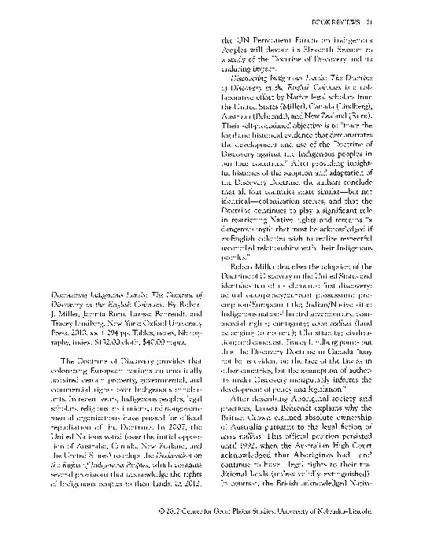
Great Plains Quarterly 32:1 (Winter 2012).
The Doctrine of Discovery provides that colonizing European nations automatically acquired certain property, governmental, and commercial rights over Indigenous inhabitants. In recent years, Indigenous peoples, legal scholars, religious institutions, and nongovernmental organizations have pressed for official repudiation of the Doctrine. In 2007, the United Nations voted (over the initial opposition of Australia, Canada, New Zealand, and the United States) to adopt the Declaration on the Rights of Indigenous Peoples, which contains several provisions that acknowledge the rights of Indigenous peoples to their lands. In 2012, the UN Permanent Forum on Indigenous Peoples will devote its Eleventh Session to a study of the Doctrine of Discovery and its enduring impact.
Available at: http://works.bepress.com/blake_watson/13/

Copyright © 2012 Center for Great Plains Studies, University of Nebraska.